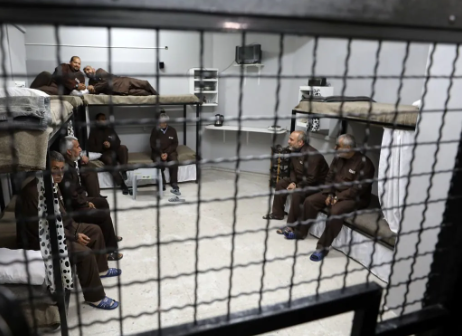Last week, the long-awaited, Egyptian-brokered, prisoner exchange, between Israel and the Palestinians finally took place, broadcast on live television around the world. In return for Gilad Shalit, the Israeli soldier captured in a spectacular raid by HAMAS fighters, Israel agreed to release 1, 027 Palestinian prisoners. The mechanics of the agreement saw the immediate release of the Israeli soldier and 450 Palestinians, including 315 serving life sentences; 45 people from East Jerusalem; 27 women; and six Israeli Arabs, to be followed by 550 others, that the American publication, Foreign Policy, described as “lesser” political prisoners of Israel’s choice, in the near future.
There were mixed feelings in Israel about Palestinian prisoners release and it took Shalit’s family 1,935 days to win over public opinion for a political deal which eventually brought home their son. The mighty Israeli army launched a most unjust war against the Gaza Strip in December 2009, attempting to rescue Gilad Shalit as a major objective; but failed, killing over 1,000 men, women and children and laying in ruins that densely-populated strip. It therefore became imperative for the extremist Israeli Prime Minister, Benjamin Netanyahu to accept the Egyptian-mediated process, which began under the ousted Egyptian dictator, Hosni Mubarak, who seemed “more interested in being the indispensable broker than on delivering outcomes”, according to Foreign Policy.
The post-Mubarak leadership in Egypt implemented a twin track policy of nudging the Palestinian factions- Fatah and Hamas, in the direction of Palestinian unity, against the backdrop of the Arab Spring which forced the hands of these factions in the Occupied Territories, where demonstrations for unity became a regular occurrence. The negotiations with Hamas seemed to have been conducted behind the Ramallah-based Palestinian leadership and they were taken seriously by the Israeli administration. This was contrary to the condescending manner successive Israeli regimes have handled the so-called Peace Process with the Ramallah leaders, who have morphed into a corrupt elite, taking diktat from Israel and money from Washington, as Israeli continued illegal land grabs and Palestinian frustration deepened, but is policed by the PLO leadership on behalf of the Israeli occupation. Against the backdrop of the changes taking place all over the Arab world, but in Egypt in particular, Israel was also fearful of a complete isolatation, having lost its despotic ally, Mubarak, who assisted the Israeli strangulation of the Palestinians. The right wing administration of Bibi Netanyahu had become increasingly isolated all over the world, because of its intransigent continuation of clearly illegal policies against extant UN Resolutions, the Oslo Agreement and the so-called Road Map to peace.
The agreement to exchange prisoners therefore became a political lifeline for the Israelis and Hamas. It helped to further strengthen the hands of the radical elements on both sides, since the rightwing government has never really been interested in a peace process which will deliver a Palestinian state on the 1967 borders with East Jerusalem, as its capital. Netanyahu’s policies have been systematically implemented to turn whatever remains of Palestine into unviable Bantustans, militarily overseen on its behalf by the Palestinian Authority, which subsists on the good life it purchases from money provided by the imperialist backers of the Zionist state of Israel. On the other hand, Hamas had never been enthusiastic about the Peace Process which has dragged for so long, has delivered nothing for the Palestinian people but has not stopped Israel from its illegal land grabs in the occupied West Bank and East Jerusalem.
From a humanitarian perspective, it was good that the young soldier, Gilad Shalit was released to join his family. And it is part of the narrative of the illegal Israeli occupation of Palestine that the world was made to know every human qualities of the young Israeli soldier, by the pro-Zionist international media, to build empathy for him, while the released Palestinians were just numbers. Neither has there been a systematic focus on the thousands upon thousands of Palestinian prisoners who suffer through Israeli prisons. How can we forget that the Gaza Strip itself and the entire occupied Palestine is not better than a glorified prison system for as long as the apartheid policies of the Zionist state of Israel continue; extant UN Resolutions are not implemented; Israel continues to hold a virtual veto on world affairs and can carry on with impunity backed by the United States, which hypocritically postures as brokering peace? Significantly, in his first interview with Nile Television in Cairo, after his release, Shalit called for the release of all Palestinian prisoners. What he did not add was the constitution of a Palestinian State within the 1967 borders, with capital in East Jerusalem. But that is the only solution that will bring comprehensive peace between Israelis, the Palestinians and the Arab world


